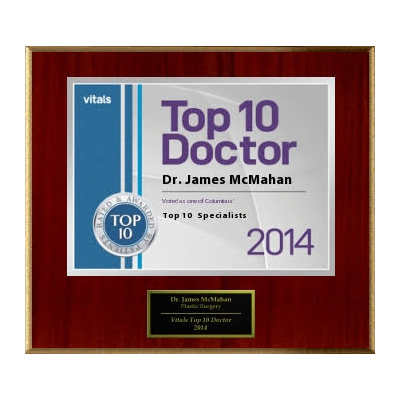Postoperative Instructions after Implant Surgery Columbus OH
In order to have the best experience and least chance of complications after breast implant surgery, it is important that you follow all of your instructions to the letter.
Pre-Operative Medications
 You should receive a list of medications to avoid for two weeks before surgery. These medications can increase the risk of bleeding and bruising with surgery. It is important to take this list seriously.
You should receive a list of medications to avoid for two weeks before surgery. These medications can increase the risk of bleeding and bruising with surgery. It is important to take this list seriously.
Most breast augmentation patients will be placed on an antibiotic, which you should start taking the day before surgery. It is not necessary to take it the morning of surgery, as you will receive a dose intravenously just prior to you procedure.
Activities
It is important to get up and move after surgery but to avoid strenuous activities, even if you are not having much pain. Walking and moving your feet and legs frequently helps to prevent the formation of blood clots in the legs, which is very serious. Strenuous activities can increase the risk of bleeding after surgery. We also like you to keep your elbows below your shoulders for two to three weeks after surgery to avoid stretching  the pectoralis muscle, which has been cut, sutured and is stretched over an implant already; so we don’t want any extra strain on it while it is healing.
the pectoralis muscle, which has been cut, sutured and is stretched over an implant already; so we don’t want any extra strain on it while it is healing.
Also see Only Light Activity after Breast Implant Surgery
Back Elevation and Ice
Sitting somewhat upright after surgery is best for several days. The best position is, as you would sit in a reclining chair. This helps to keep the swelling down. Many patients also find that ice helps to reduce pain after surgery. It is best to keep a cloth or towel between you skin and the ice and to put it on the upper aspects of the breasts. Ice is typically good for the first 24-48 hours after surgery.
Post-Operative Medications
Pain pills are to be taken as directed as needed. If you do not need them, do not take them. You are given more than one so that, if you have problems with one (inadequate pain relief, nausea, allergy, etc.) you have something else to take. Unfortunately, we can no longer call in pain medications. We also often prescribe Valium to treat back pain and muscle spasms. Do not take it at the same time as the pain pills.
If you are sick to your stomach from anesthesia or the narcotics, take the medication for nausea that you were given, as it was prescribed and stick with liquids until the nausea has subsided.
Constipation
Narcotics can cause severe constipation, which is why we recommend that you start taking extra fiber and stool softeners.